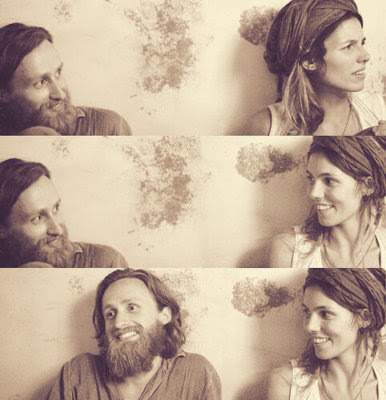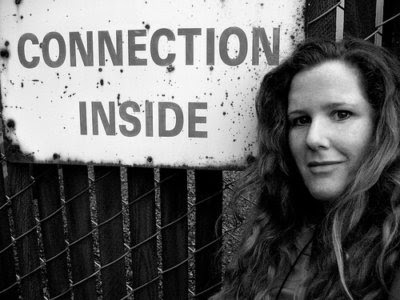–Connecting is not just words, it’s a sense of being open and available. Body language, facial expressions, how we simply say hello or smile, all make an impact.
— This week, work on being open whether you feel good or not. Being open allows for the connection to occur. Lee Brower says a quick blessing for the person before he meets with anyone, automatically starting the process.
–Give to get. I try to be “real” or open about myself (i.e. vulnerable) and be the first to get there. Set the tone.
Finally, just be your kind self. Be the person your dog thinks you are. Connections start here. Below is a very good and detailed article on connecting from Harley Therapy’s Counselling Blog for more.
If you see me this week….let’s really connect.
Rule # 7 from my book The Fantastic Life: Be Value Driven
Make connection a value that drives your actions this week. Actively look for ways, big and small, that you can make those moments happen.
Connecting with People- What It Is and Isn’t, And Why You Might Find It Hard
March 21, 2017

By: Chris Hobcroft
Connecting with people is now proven by research to be good for our moods, and even our physical health.
- But what is “connecting”, really?
- What makes it so important?
- How can you tell if you are actually connecting to others?
- And what can you do if this subject a constant struggle for you?
Do I really have to connect with others?
Connection has been recognized as important to wellbeing since the last century.
Psychologist Abraham Maslow’s famed ‘hierarchy of needs‘ places our need to belong as secondary only to our survival needs. And attachment theory suggests that a child needs a trusting connection with a caregiver to do well as an adult.
Connection protects our mental health. A study on men who suffered depression showed that even joining just one social group lowered chances of feeling depressed again by 25%. [1]
And connection even matters when it comes to physical health and longevity.
A large scale research review on connection’s link with living a long, disease free life found that low social connection has as much of an affect on our mortality rate as not exercising, and is twice as harmful as being overweight. The review also felt loneliness affects morbidity as much as a smoking or alcohol problem. [2].
What does connecting with people really mean?
Real connection is more than just talking to others or sharing interests. After all, we can talk for over an hour with someone about sports or politics, even if we secretly can’t stand them.
More profound than mere conversation, true connection can happen without words and with someone we don’t even know. On the other hand, constant contact, such as working with someone every day, is no guarantee of actual connection.
Connecting with others is a sense of being open and available to another person, even as you feel they are open and available to you. Other ingredients of human connection are empathy and compassion – we feel goodwill to the person we are connecting with.
Examples of connection with others
Examples of human connection are things such as the below:
- having a personal conversation about what is important to you with someone and feeling listened to and understood
- taking the time to listen to someone else and feeling real empathy for them
- helping someone else out of unconditional goodwill
- offering sincere gratitude to another and receiving gratitude from others
- catching a strangers eye and both smiling
- a shared experience with others that involves laughter and goodwill.
How do I know if I’m really connecting to others?

By: Steve Ng
1. YOU ARE IN THE MOMENT.
When we connect with others, we are no longer thinking about what went wrong in the past or of our future worries. We are just fully available to the present moment and to the shared experience we are having with another.
2. YOU ARE BEING YOURSELF.
Human connection only works if there is honesty. It doesn’t work if we are trying to be something we aren’t.
3. YOU FEEL OPEN – WHETHER YOU FEEL GOOD OR NOT.
Connecting with others often feels good. But this is actually not always true. Feeling enough trust with someone to share a sad experience or something you are upset about can be a very strong way of connecting with someone as well.
4. YOU FEEL EMPATHY AND KINDNESS FOR THE OTHER PERSON.
Anger or being mean close us down to connection, as does judgement and criticism.
Human connection is usually kind. Sure, we can feel connected laughing with others about someone else. But often afterwards there is a hollow feeling, which shows it wasn’t connection at all.
5. A SENSE OF TRUST EXISTS BETWEEN YOU AND THE OTHER PERSON.
This can happen even between two strangers – for example, allowing someone to help you with your suitcase up a set of stairs shows you trust them.
And these things often aren’t connection at all…
- You are always trying to connect with others by being interesting, funny, or smart, and you are always looking to others’ reactions to know what to do next.
In your need to feel accepted you are not being yourself, or are even manipulating others for attention. It’s not connection, it’s showmanship.
- Your ‘connection’ is based around a shared dislike of other people, or on talking about others.
Sure, you have something in common, but that tight feeling inside is not one of trust and connection. It’s just group misery.

By: Shannon Kringen
- You are always ‘having a laugh’ with others.
Many people hide themselves behind humor. Again, you can’t really connect if the real you isn’t present.
- You have many ‘fun’ nights out getting drunk.
This can sometimes lead to genuine sharing and connection. But if the only thing you share is that you both like drinking or dancing, then it’s shared experience over true connection.
- You have spent years of your life with someone.
If you are not able to be yourself or trust the other, or if they are hiding their true self, and if trust is just not there, then you are are merely passing time together. Sadly, this all too often passes for ‘friendship’ or even a relationship in modern society.
Why is connecting with people so hard for me?
- Are you always watching the way others are so comfortable around each other, but simply don’t understand how?
- Do you feel alienated from other people?
- Does social interaction leave you feeling anxious?
- Do you feel you have no real sense of self to connect to others with?
- Do you constantly get feedback that you are a ‘difficult’ person, or ‘hard to understand’?
Human interaction is not easy for everyone. For some people it’s just a case of shyness, but if that is so, you’ll tend to feel connected to your family and a few close friends, just not strangers.
Otherwise, a failure to connect to others tends to be a sign of a psychological health issue. Which sounds scary, but simply means you might need to reconsider your perspective, or seek some support to try new ways of thinking and behaving.
Psychological problems that cause difficulty connecting with others
There are several, including:
- low self-esteem
- trust issues
- attachment issues
- childhood trauma including abuse
- autism and aspergers
- depression
- anxiety and social anxiety disorder
- personality disorders.
Personality disorders and difficulties with connecting with people
Find you can’t connect with anyone at all, not even your family? That you’ve had this problem since at least young adulthood? That others constantly find you think in act in ways that are ‘different’ or ‘strange’? Or even find you just don’t even want to connect, and can’t comprehend why others do?
These are all possible signs of a personality disorder, a common reason connecting with people is an issue.
A personality disorder means that the way you see the world, and therefore the ways you behave, just don’t match the way that most people see things. Being on a different wavelength than the ‘norm’ means you might not understand others, even as they don’t understand you.
What do I do if I think I have a personality disorder or issue?
It’s best not to self-diagnose. We all have times in life when we act and think in ways that others find unusual. Often it’s just down to stress or a difficult life change, or because a childhood trauma is rising up to be dealt with.
If you recognise yourself when researching signs of a particular personality disorder, or feel you have issues with your emotional health that are holding you back and leaving you lonely? It’s best to seek support. Speak to your GP, a school counsellor, or consider working with a private counselling psychologist or psychotherapist.
